Nov 15, 2019 | Audreyanna Martin
Today's blog is a guest post written by Audreyanna Martin, a college student. We hope you find her powerful reflection on stereotypes and Native identity thought-provoking.
I grew up in a small town along the Missouri River located between two reservations. Because of where I grew up, near Native American communities, my viewpoint of the Indigenous people was stereotypical: lazy, addicted, greedy, etc. My viewpoint and understanding did not change until I came to college at Augustana University in Sioux Falls, South Dakota (SD).
One College Class Began to Open My Eyes
During my second year at Augie, I took a Native American Social Studies course. Over the course of the semester, my eyes were opened, and I no longer associated those stereotypes with Native Americans. Over the duration of the course, I became educated so deeply about the Native American people, the trauma they've undergone, and their generational hardships. I was ashamed and embarrassed that I didn’t know the truth about some of the people with whom I had grown up (Lakota, Dakota and Nakota) and gotten to know throughout my life in Chamberlain, SD.
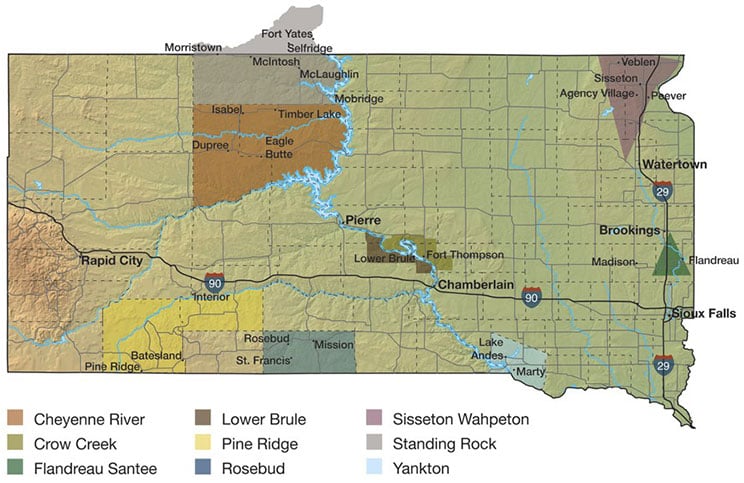
After taking that course, I have had a deeper appreciation and respect for Indigenous people. Because of my change in perspective, I became driven to help educate others with similar preconceptions and misunderstandings. I want to help and want to clarify the mistreatment and judgement of Native people.
I was given the chance to do an independent research study during the Spring of 2019. Given the choice to research basically any topic, I chose to reach out to Native American people and volunteered to work with Native Hope.
Working with Native Hope to Do My Research
Native Hope is an organization based in Chamberlain, South Dakota. They’re an organization with the mission to address the injustice done to Native Americans—dismantling barriers through storytelling and impactful programs to bring healing and inspire hope. Not only does Native Hope have a strong, valuable mission but also their core values exude the same message. They serve, honor, advocate, and act—all of which I have tried to follow with my research as well. Although Native Hope is based in Chamberlain, they work with many organizations across the United States and have a media team based in Santa Fe, NM.
Although I wasn’t sure exactly what my topic would be, I knew it would pertain to Indigenous people. Finally, I concluded that historical trauma and the resulting identity crisis would be my focus. I decided on this topic after reading disheartening articles and stories of Indigenous peoples’ struggles and poor treatment throughout the nation.
I wanted to understand the identity crisis from the perspective of the Natives I grew up around. As part of my independent study, I conducted the following interviews: nine individuals from different areas across the Midwest, five were females and four were males. Three of the interviewees are classmates of mine here at Augustana University, while three of them are former classmates from my high school. The remaining three were older individuals with whom I connected through Native Hope.
Studies Read on Historical Trauma
Many of the articles I read for my research project were about historical trauma and identity issues faced by Native American peoples. A reoccurring issue mentioned in numerous articles was the struggle with alcohol, drugs, and depression. These three horrific, life threatening issues affect young people and continue to disrupt Native American communities.
Historical trauma is described as the emotional harm to a group of people based on past traumatic experiences. Throughout the articles, different examples of trauma were outlined as the following:
- “ethnic cleansing” or forced assimilation,
- mandated boarding schools,
- required placement on reservations,
- stripped hunting rights,
- stifled cultural practices,
- the previously stated use of drugs and alcohol.
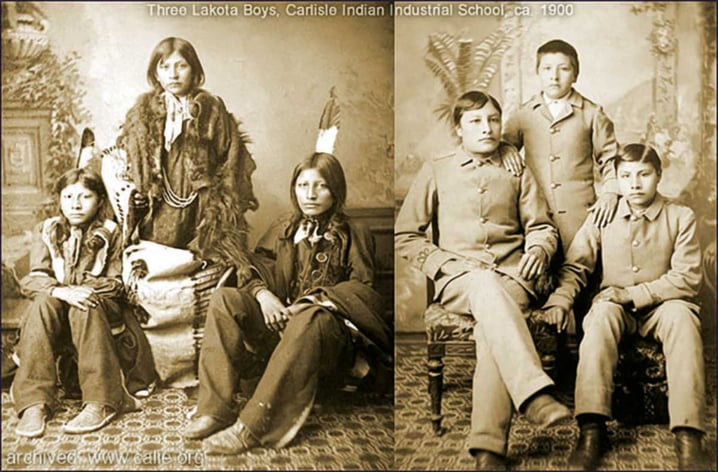
“’Someday, we’re all going to be like white people," my grandmother said in 1950. She noticed that the young people chose not to speak their native Kiowa language. She commented on the change in our diet from traditional foods to prepackaged goods. Popular American culture became dominant in daily life.
She went on: “…Fifty-four years later I look around and think we may not be white people, but indeed we are more like them. We emulate their ways. We are educated in their schooling system. We can speak and write like them. We have adopted their form of government. We perform their dance and music. We hold jobs and make mortgage and car payments. We are consumers. We enjoy the comforts of modern life. In many ways, we have assimilated into the dominant culture. On the surface, it seems we are indeed like them.”
On the Surface—What's Underneath?
Below I outline the questions I asked individuals and the combined responses that stood out. I was pleasantly surprised with what the interviewees were willing to share with me—their responses were even more enlightening than my college course.
"What does it mean to be Native American?"
"Pride.” “Fighter.” “Culture.” “Identifier.” “Strong.” “Hard.” “Judgement.”
Being Native American holds a different meaning for many people; however, “pride” and “strength” are two words that were often used when I talked to these individuals. It was expressed that they hold this pride and strength due to the hardships their ancestors had to endure and overcome.
Through the answers I received, it was evident that the historical trauma faced by previous generations continues to impact Native American people. This was made clear by answers such as “everything my Native ancestors had was taken from them, their identity and a culture of freedom to roam the plains and live.”
However, one individual I interviewed gave an especially moving response to this question: being Native American means “being a part of a group that is unique, that sets us apart, and creates a responsibility to spread my culture."
Another answer that came as a surprise to me was “Honestly, I don’t realize people see me as a minority, let alone Native American.” I took this individual’s answer as a loss of his sense of culture and an inability to identify more deeply with himself.
It is highly necessary to appreciate and recognize how crucial Native American peoples are to American history. A few of the responses involved the importance of caring and respecting the Earth and its creator. I found this to be an important aspect of Native American culture that ought to be adopted and shared by all people.
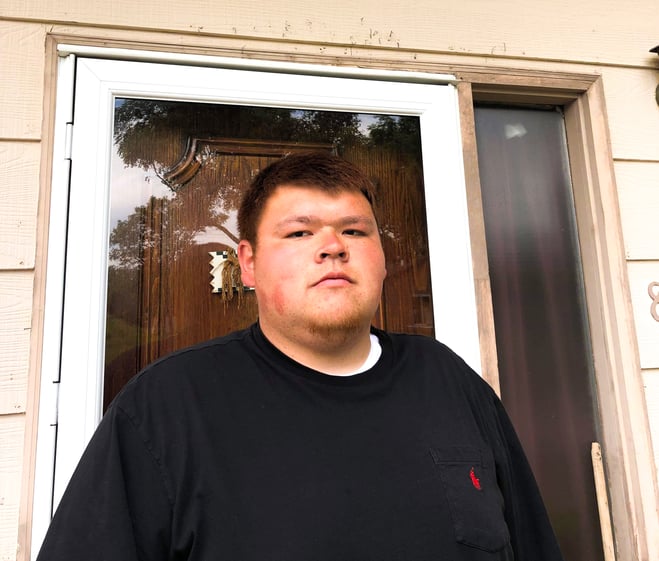
"How Does the Treatment of Your Ancestors Impact You?"
“Hurt.” “Assimilation.” “Awkward.” “Saddened.” “Parasite.” “Effects.”
The devastating treatment of Native American ancestors still has an impact on generations today. This question sparked various emotions of pain for all those with whom I spoke.
One of the very first answers I received compared the Native American people to “more of a parasite than people.”
This was further put into perspective by other answers. They mentioned “Kill the Indian and Save the Man,” an ideology that spurred on the horrific treatment of Natives during the boarding school era. Many young, Native American children were sent far from their families to attend boarding schools where they were forced to assimilate. This caused immense pain for the children, the families, and the generations to come. Again, Native Americans were treated as less than human.
“Having your ancestors be subjected and treated as less than animals to where there was an open season on human lives is disturbing,” remarked one interviewee.
The “overall treatment of Native people is deplorable,” today and in generations passed. “My mom is Native American and my dad is white; my brother is darker than I and is, therefore, treated differently than I. I am also treated like I don’t belong, I personally feel like I cannot take part in dancing and other ceremonial rituals.”
I am hoping that these few quotes from indigenous people openly discussing their pain and frustration shed light on the need for change and an end to the ignorance and denial on the part of non-Natives. The whole treatment of Native American ancestors has caused one individual I spoke with “to look at mankind in a different light.” I fear I share in this outlook.
The poor treatment of Native ancestors creates greater incentive to “do better for community,” which is important for healing.
Where are You in Your Healing Journey?
"There is so much work to be done, Native American voices need to be heard.”
“I came from generations of beaten down people who have lost their identity. I was also put in a boarding school and had my hair shaved off, told not to speak my language and basically stripped of who I was or didn’t know who I was to begin with. Then I went into the army and was called Chief Geronimo and asked if I like fire water. Then there were even those who thought that I got everything free. Even my own people called me apple because I was not a full blood. That is just a fraction of what I went through. So, on my healing journey, I feel I am there. I have moved forward because I am a fighter, and I have the spirit of my ancestors standing behind me saying ‘Be Strong.’”
Healing, forgiveness, and acceptance are all hard things to achieve, it’s a challenge within itself. Most of the answers I received indicated that they have been able to heal because they are strong and want to make their ancestors proud. The anger and sadness never seems to fade away for Native American communities, but there are great improvements to be made in order to benefit their lives and the lives for generations to come. “I personally struggle with depression and anxiety,” said one individual; like for many other Natives, these issues stem from the trauma and emotionally destructive turmoil caused in the past to the Native American peoples.
Here's what another individual had to say about where they are in their healing:
“Standing up for my people and myself by going to college and graduating and making an impact in my life but also making an impact in the lives of others. By beating [the odds] and not becoming another statistic. Not blaming other people for what happened to my people and not becoming angry, but living my life now to make my people proud. This is where my healing begins.”
"What Did You do to Heal?"
A sense of community, culture, and education seems to be key to the steps of healing. Many of the individuals I was able to reach out to seem to share the same feelings of connecting to their culture, language, community, and cultural activities in order to heal.
“I have attended sweat lodges to cleanse myself, prayed, talked to my grandmother, and observed the Sundance ceremony.” Multiple times when I asked this question, I received the response of “educating myself on my culture, beliefs, and people.” The image of unity proved to be a good example of healing: “…the most significant healing was when I went to Standing Rock and saw all the tribes united.”
“I made a decision that the past was the past, and the only way to a better future was to better myself. So, I started being the first native to be and do certain things in my family, school, and community. My healing is though showing bigots that I am not the Native American stereotype that they say all Indians are. I can say that I have integrity and honor and am proud of my heritage, and no one can take that from me. Unless I allow them to do so, which I will not.”
"Do You Feel You Need Healing?"
“Life is a continual journey...” Healing is not an automatic thing and takes time, and that is clearly seen throughout Native American communities.
I received mixed answers on this, whether people have reached their healing point, while others feel “stuck.” A few collective answers were that “healing comes with maturity,” “healing comes with acceptance,” “healing comes when Native American culture is no longer hidden.” The healing journey “will continue as long as we are treated differently by non-Natives.”
Personally, I think the only way the treatment will improve for Native American communities is when non-Natives accept the wrong doings of the past, and particularly, the government recognizes their ill actions that have continued throughout history. The healing will be completed when “my Native people are treated with dignity and respect.” Another statement made which I believe pertains to more than just Native American communities and needs to be recognized is that “there is always room for healing, it never stops.”
"What Can Native Hope and Other Organizations Do?"
Many responses to this question were just excitement and appreciation that an organization like Native Hope exists. An important contribution that Native Hope can make is to “educate people,” and “continue to keep Native issues on the minds of the public.”
Native Hope is a great organization for “bringing awareness and recognition to the Native people and our traditions.” Native Hope needs to continue to “encourage and help” Native people and educate others. Native Hope is helping to create a “pedestal for Native Americans, in order for their voices to be heard.”
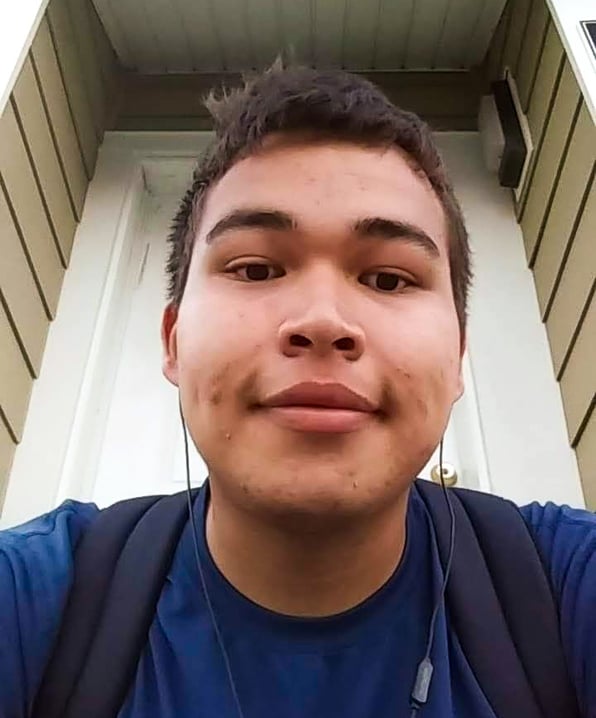
"What Can Non-Native people Do?"
Non-Native people have a long list of steps to take to improve the situation between Native American communities and non-Native communities.
Non-Native people need to “educate themselves and keep their minds open.” Individuals need to be more “accepting and get to know Native American communities and move past the stereotypes.” Non-Native people need to “support groups like Native Hope and let their state and local government know more needs to be done for Native people.” The continued education is key, they need to “learn about our history, the genocide, and systematic oppression of our people.” Everyone needs to “just be nicer.”
"What Can Your Community Do?"
“This country has become a so-called melting pot of cultures, why is it that every culture that migrates here can celebrate their traditions and beliefs, except the one culture who has been here before the others. Quit being afraid and educate yourselves on how other cultures honor their children and live.”
“At home, on the reservation, I would like to see more encouragement for students to continue with their education, to get involved with their culture. For here at Augustana, we need a higher enrollment of Native American students, and a wider range of Native American historical and cultural classes to be offered.”
Ironically, Augustana is the place where my views of Native American communities changed, so seeing more of these eye-opening classes on campus, and more Native American students here would be a step in the right direction.
Communities need to “help each other” and “encourage” one another. The continued “language classes, beading, and quilting and learning about culture as a whole.”
Encouragement, education, and acceptance are all important aspects for communities to improve situations for Native American communities. Communities need to promote and “honor and support Native activities.”
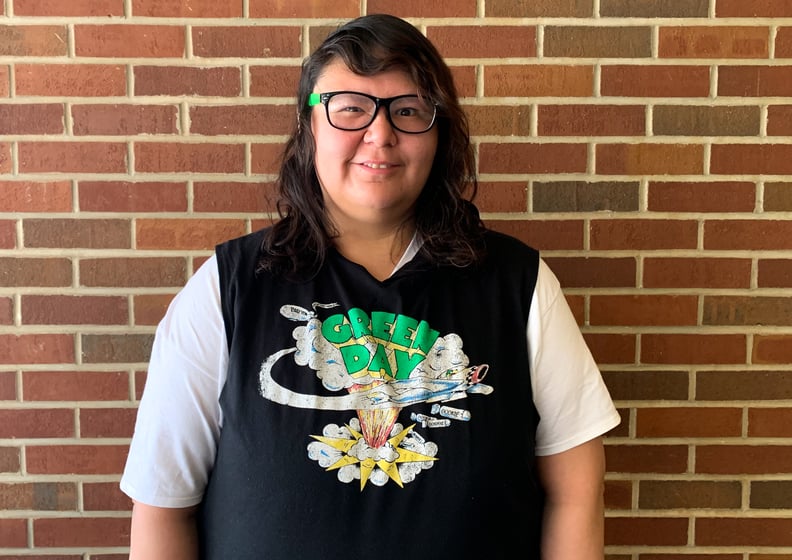
I Became Educated about a Vital Topic in American History, and My Viewpoint Changed As a Result
My brief time researching and getting a deeper understanding of the struggles Native American communities have faced and continue to face has been rewarding.
I find myself better educated on a vital topic of American history, grateful for the opportunity to share my work, and hopeful that my findings will help others educate themselves and share in the understanding of the value of Native American people and their communities.
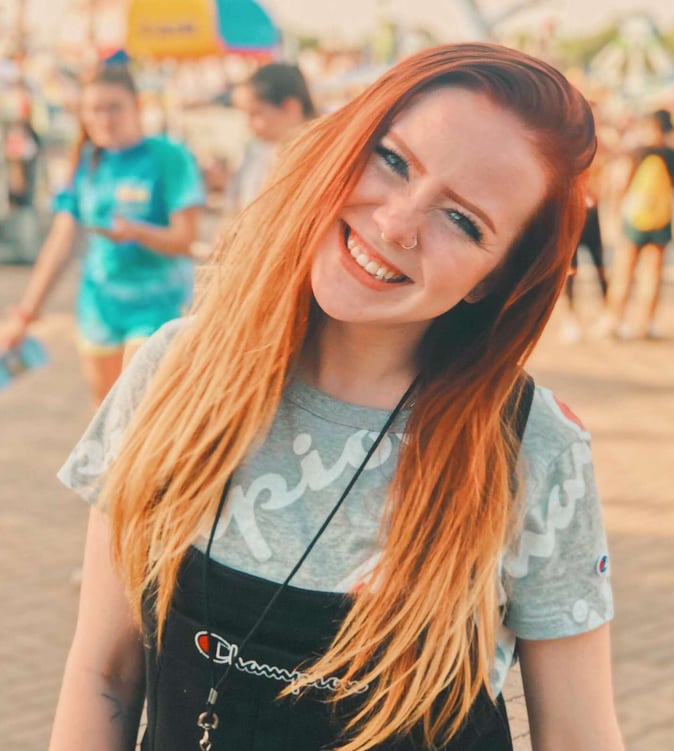
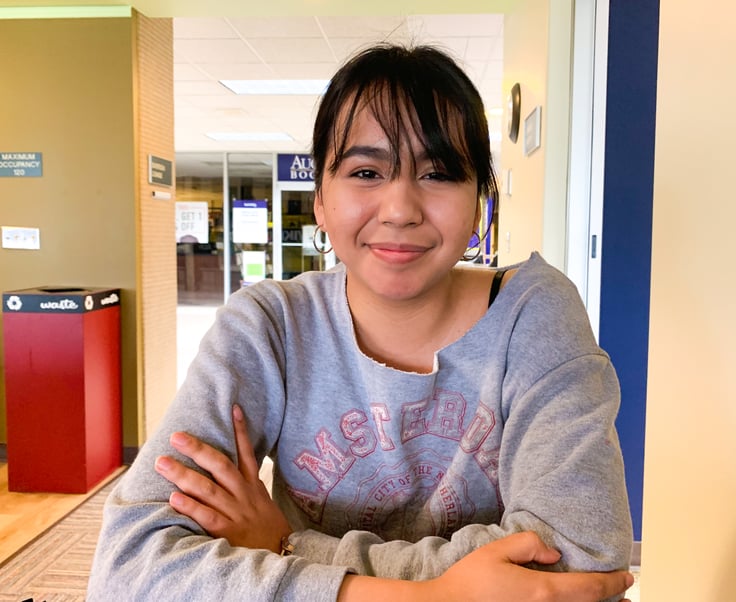
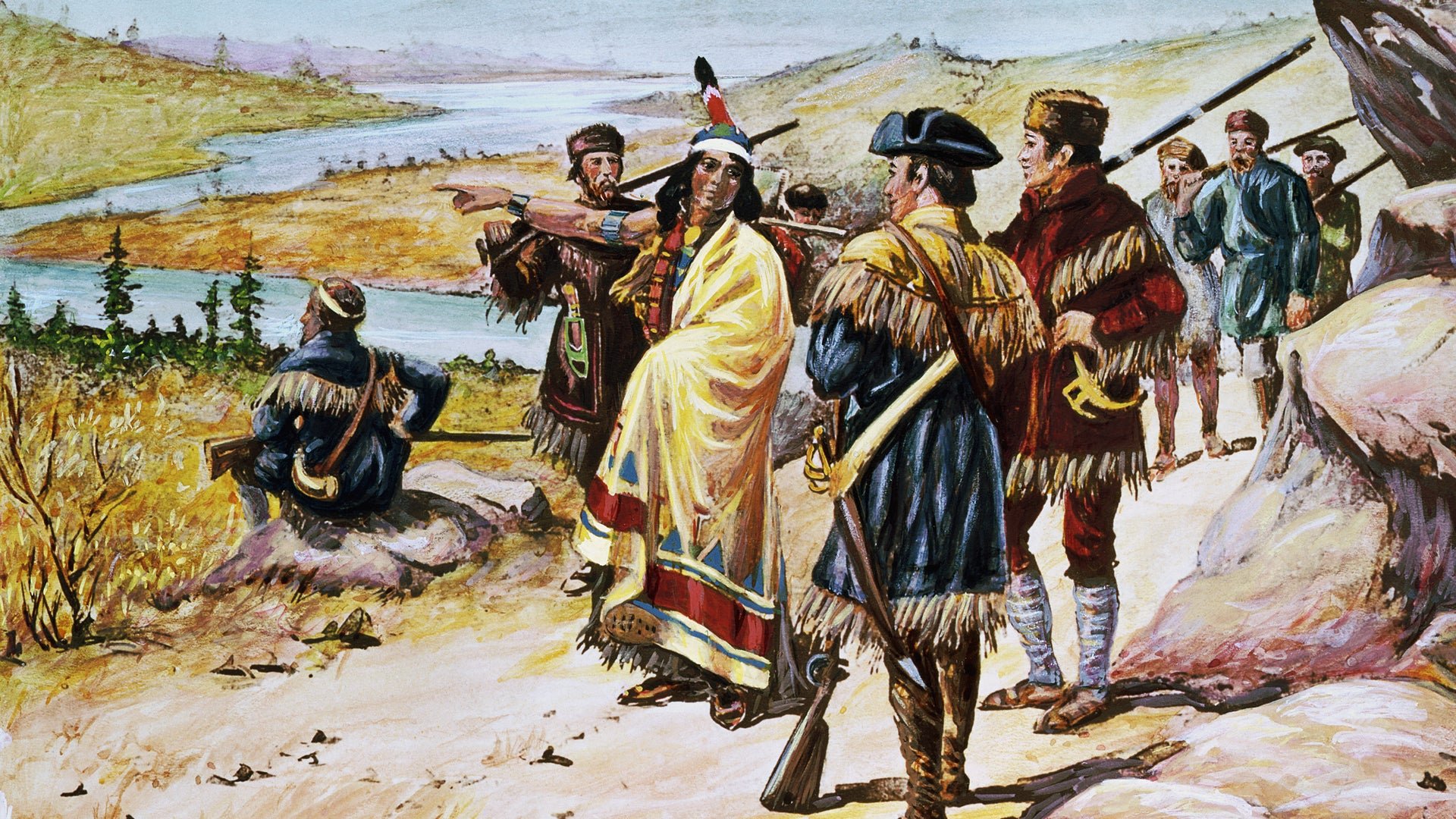
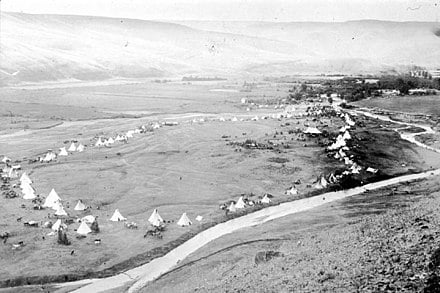

COMMENTS